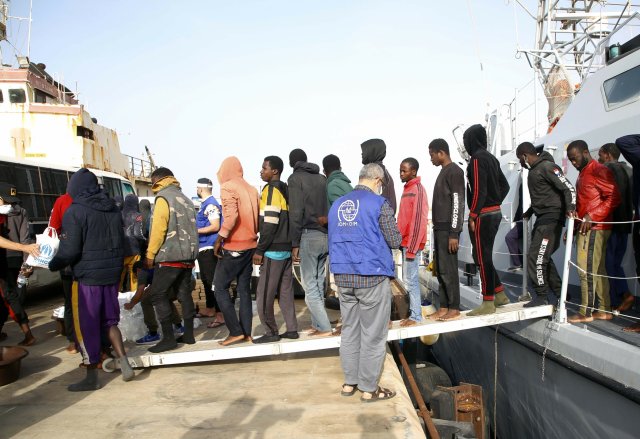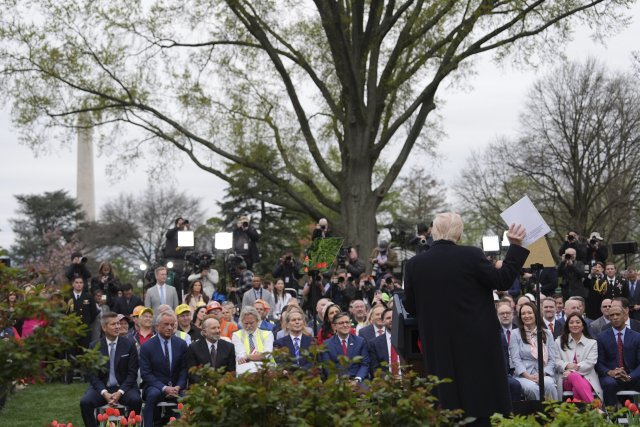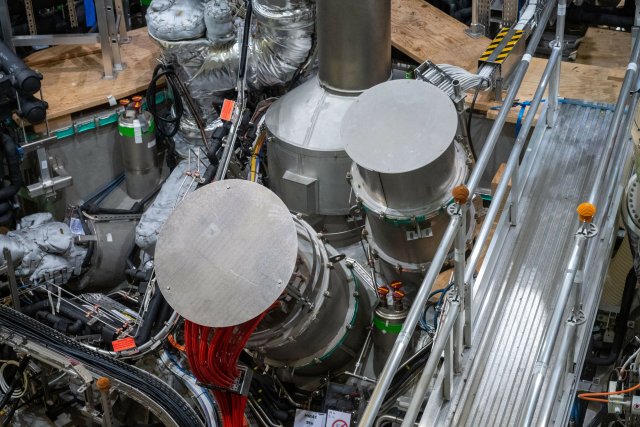- Kommentare
- Column »Red Flag«
How East Germany got overrun by Nazis
The far-right AfD is riding high in the polls. They get their best results in East Germany. What happened to the former GDR?
This summer, the German town of Raguhn-Jeßnitz made international news. This collection of villages, with less than 10.000 inhabitants, elected a mayor from the far-right Alternative für Deutschland (AfD) with 51 percent – the AfD's first mayor since the party's founding a decade ago.
Recent polls have put the AfD at up to 20 percent – twice what they got at the last elections in 2021– second only to the CDU/CSU. While far-right parties are advancing across Europe, many find this more worrying in Germany than in, say, Finland.
Friedrich Merz, who heads the CDU, blames progressive cultural shifts: »With every newscast using gender-inclusive language, a few hundred more votes go to the AfD.« Or maybe the proposed switch from gas furnaces to electric heat pumps is driving people to the far-right. Merz's solution is a Kulturkampf in the style of the republican Ron DeSantis, just with less charisma. In other words: Stop the AfD by taking up all of their talking points.
Something else is going on here. It's not really about wind turbines or rainbow flags. It's not even about immigration, when you consider that the people most enraged by »uncontrolled immigration« live in places where they never run into an Ausländer. The AfD is particularly strong in East Germany, with up to 32 percent. From 1949 to 1989, this territory was the German Democratic Republic (GDR).

Red Flag is a column on Berlin politics by Nathaniel Flakin. It appeared in Exberliner magazine from 2020 to 2023 and found a new home at the Berlin newspaper nd – as their first content in English. If you like a regular dose of very local communist content, please share. Nathaniel is also the author of the anticapitalist guide book Revolutionary Berlin.
Lesen Sie diese Kolumne auf Deutsch.
The Federal Government's Commissioner for the East, Marco Wanderwitz of the CDU, thinks the GDR is to blame, even 30 years after its collapse: people in the East were »socialized in a dictatorship so that they haven't arrived in democracy.«
This column is appearing in »nd«, which was once the GDR's flagship newspaper, and today is an independent cooperative owned by journalists and readers. It seems like a good place to take that argument apart.
The GDR was, no doubt, a Stalinist dictatorship: the government completely suppressed civil society, but also persecuted Nazis. East Germany simultaneously guaranteed jobs and housing for all.
It wasn't the 40 years of the GDR, but rather the 30 years since then, that saw the rise of fascist forces. After the Wende, when the capitalist West swallowed up its smaller neighbor, the planned economy was sold for scrap. That left millions of former GDR citizens poor, atomized, and open for authoritarian fantasies. Especially young women fled, leading to one of the most male regions in Europe.
Along with an economic shock doctrine, the East also got a new state apparatus, with intelligence agencies that had been founded by Nazi war criminals. For a recent example, look at Hans-Georg Maaßen, a former head of the Verfassungsschutz who has since outed himself as an antisemitic conspiracy theorist, raving against »globalists« who secretly control the world. During the 1990s, that agency funneled lots of money to Nazi groups across the East – if you believe their version, they had to fund Nazis in order to know what Nazis were up to.
Capitalist restoration tilled the soil, and West German Nazis planted the seeds, for the current rise of the AfD. In the 1990s and 2000s, all this discontent was channelled into the Party of Democratic Socialism (PDS) – a protest vote against the evils of capitalism. But the PDS was so successful that it became part of the establishment. Now called Die Linke, the party is administering the very misery it has promised to fight against.
Christian Lindner, Germany's finance minister and dark wizard of austerity, has told people they should rather vote for Die Linke instead of the AfD – which explains exactly why so many people are doing the opposite. The torturous paradox is that people who are trapped in poverty cast a protest vote for a party demanding drastic cuts in unemployment benefits. The AfD likes to claim that they are a party of the little guy but in reality, they are funded by billionaires.
The only way out of this fascist downward spiral is to give people what they once had: a sense of security and purpose though dignified work. I'm not saying we need the GDR back – they used to lock up critical communists like me, after all. But we need a socialism based on extreme democracy.
Das »nd« bleibt. Dank Ihnen.
Die nd.Genossenschaft gehört unseren Leser*innen und Autor*innen. Mit der Genossenschaft garantieren wir die Unabhängigkeit unserer Redaktion und versuchen, allen unsere Texte zugänglich zu machen – auch wenn sie kein Geld haben, unsere Arbeit mitzufinanzieren.
Wir haben aus Überzeugung keine harte Paywall auf der Website. Das heißt aber auch, dass wir alle, die einen Beitrag leisten können, immer wieder darum bitten müssen, unseren Journalismus von links mitzufinanzieren. Das kostet Nerven, und zwar nicht nur unseren Leser*innen, auch unseren Autor*innen wird das ab und zu zu viel.
Dennoch: Nur zusammen können wir linke Standpunkte verteidigen!
Mit Ihrer Unterstützung können wir weiterhin:
→ Unabhängige und kritische Berichterstattung bieten.
→ Themen abdecken, die anderswo übersehen werden.
→ Eine Plattform für vielfältige und marginalisierte Stimmen schaffen.
→ Gegen Falschinformationen und Hassrede anschreiben.
→ Gesellschaftliche Debatten von links begleiten und vertiefen.
Seien Sie ein Teil der solidarischen Finanzierung und unterstützen Sie das »nd« mit einem Beitrag Ihrer Wahl. Gemeinsam können wir eine Medienlandschaft schaffen, die unabhängig, kritisch und zugänglich für alle ist.







